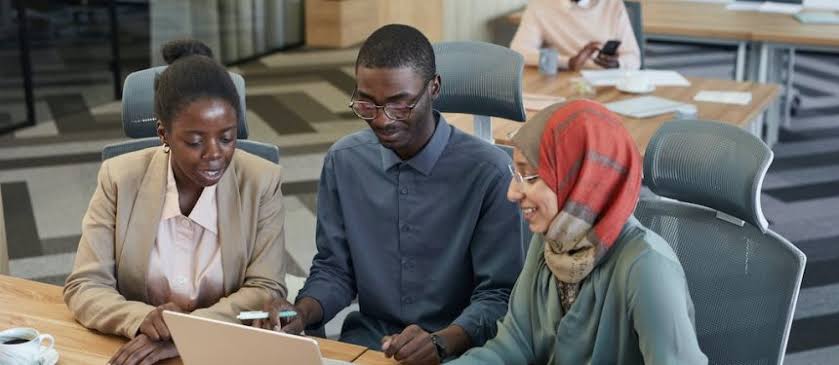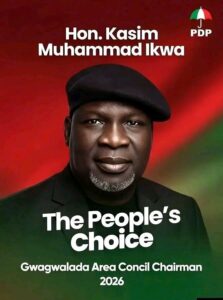Nigerian students in other countries seem to have become frequent targets for violence.
If they are not killed by the security forces in their host countries, they are murdered by local citizens.
This is happening everywhere, from Africa to Europe, Asia, and America.
Many Nigerians who have gone to places like the UK, Canada, Ghana, South Africa, UAE, and Cyprus for quality education have been brutally murdered recently.
Parents are left in deep sorrow and pain when their children fall victim to these tragic incidents.
Some were killed just before completing their studies, while others were attacked soon after starting their education.
Sadly, those responsible for these terrible crimes against Nigerians have never faced justice. Host countries often handle these cases lightly.
Even when they show some interest, they rarely see the investigation through to the end, allowing the culprits to escape punishment.
Just last month, on May 17, 2024, a 43-year-old Nigerian named Prince Ebuka was allegedly shot and killed by South African Police in Danielskuil, Northern Cape. This sparked outrage from the Nigerian Diaspora Forum (NDF).
Reports say the circumstances of the shooting are unclear, but family sources state that Prince Ebuka was a law-abiding citizen with no criminal record.
Hon. Chike Amadichi, the NDF’s Country Director, urged South African authorities to conduct a thorough and transparent investigation into the incident.
He said,
“The Nigerian Diaspora Forum (NDF) expresses its deep concern over the recent tragic event in Danielskuil, Northern Cape, South Africa on May 17, 2024.
“We urge the public to stay informed as we closely follow developments and cooperate with the authorities to ensure a thorough and transparent investigation.
“Our commitment remains strong towards advocating for justice and upholding human rights for all Nigerians living in the Diaspora.”
This incident has raised concerns about the safety and well-being of Nigerians living in South Africa, many of whom have faced xenophobic attacks and harassment in recent years.
The group also urged the Federal Government to take decisive action to protect its citizens abroad
“As the investigation continues, the Nigerian community in South Africa and beyond is mourning the loss of Prince Ebuka, a husband, father, and friend who was brutally taken away from his loved ones.
“His family and friends are demanding answers and justice, and the world is watching to see how the South African authorities will respond to this tragic incident,” the NDF submitted.
Also, the family of the 19-year-old Afolabi Opaso is still waiting for answers on the circumstances surrounding the death of their son on December 31, 2023.
Afolabi was allegedly shot dead by Winnipeg police officers in Manitoba, Canada.
According to the Independent Investigation Unit of Manitoba, which investigates all serious incidents involving the police in the province, the officers were alleged to be responding to a well-being call at an apartment building at 77 University Cres, at about 2:30 pm on December 31.
“Nigeria has not ceased to amaze those who are critical. You do not wish away what you have no capacity to control.
“The bottom line is that the outsourcing of education is a direct function of the failure of the educational system in Nigeria.
“As you know, those who have the luxury of sending their wards to study abroad are paying through their nose; they are paying far more expensively than those studying in Nigeria.
“The corresponding risks to which our worlds are now exposed is one that underscores really the insufficiency of the government to provide education, and it has complicated the whole challenge of Nigerians and their search for quality education in such a way that our successive governments are now exposed to the ridicule of the entire world.
“Even as close as the Benin Republic here, the statistics of Nigerians there in the make-shift buildings in the name of education is pitiable.”
He added,
“And that is what has promoted the private universities in our country where our people are subjected to excruciating expenses to take their wards through normal academic education.
“So, instead of spending 10 years for a course of five years, parents tend to make do with the private universities where they are made to pay what it has taken the entire generation to go to school,”
He also said,
“There is too much politicization of education in the system. It is no longer seen as a core professional and foundational enterprise that determines and defines the future of the country, as well as guarantees the quality and content of leadership that can come from there,”
“So, to think that people will stop sending their children abroad, is to imagine that all of these things are already in place.
“But, the reality is that they are not in place, and there are no signs that they will soon be in place with the direct consequence that things will continue to be as they are,
The poverty of the situation is that given the total resentment of the comity of nations against this huge and potentially great country that is squandering its fortunes, our people are subjected to the worst forms of attacks and harassment.
“In South Africa, it is xenophobia; in Asian countries, it is intolerance because anything committed by any Nigerian, be it the least of offences, attracts maximum punishment.
“The common denominator is that our citizens have come under direct siege in their pursuit for better education outside the shores of this country. It is an indictment of the government.”
According to him,
“I think that the Committees on Diaspora in the House of Representatives and Senate must find a way in furtherance of their over-sighting to compel the foreign affairs ministry to do something.
“It is not just drinking tea from one country to another; these are core responsibilities.
“The way and manner we have continued to undermine and expose ourselves to the ridicule of the world makes it easy for them to kill us and nothing happens. So, the ministry of foreign affairs should be able to mobilise and respond adequately.”
“But it depends on parenting. I know that some of the victims were involved in clubbing and cult-related activities.
she stressed,
“If a child is properly orientated at home; properly taught and groomed at home; when such a child gets out of Nigeria to study, he knows he is representing his parents there and his family’s name is at stake.
“So, he will go there and behave well. He will try to stay out of trouble because he is there to study and not to club. Why the clubbing, the cultism and the fighting? He will hide himself and focus on what he has gone there to do.
“If parents train their kids properly, they will keep out of trouble in foreign lands,” she argued.
“I think it is very important to have a holistic approach to understand these issues and not just necessarily getting alarmed about what happens to Nigerian students abroad.
“What is also Nigeria’s role in protecting her citizens in the country or outside the country? So, these are the critical questions that must be addressed.”
“So, the context of security whether in Nigeria or anywhere in the world, must be placed at the heart of who controls the economy and for what purpose. Is the economy being controlled in the interest of the people or not?
“You also have people, who also have their own peculiarities in terms of insecurity, irrespective of what is being presented. When you present such places as peaceful and comfortable, it is to the extent of what is being projected, which shows that there are some discontents in those societies.
“And for those who are marginalised of access to their basic needs, they also transfer aggression and that’s what has been responsible for violence instead of promoting unity and peace.
“My perspective has always been that the spirit of internationalism has to be based on what affects us and that is why the slogan of workers of all countries is, ‘unite against the oppressors and exploiters of various countries.’
“That is the context because without placing it in that context, we just get unnecessarily alarmed. For those who have to travel abroad, there is the material force that propels them because they have to survive, irrespective of the dangers they are going to face.
“It is like somebody who is in danger; he will assess which is less and that is the desperation of Nigerians wanting to travel abroad despite the dangers. The policy environment necessarily turns them into those frustrations.
“For them, death is a necessary consequence they have to face if they don’t want to starve to death.”
“Do you know how many thousands of Nigerians that go abroad without the consent of their parents? That is the issue.
“How many parents in Nigeria can afford to send their children abroad? The children of the poor that you find abroad, stowed away in most cases; they struggled themselves to be there out of desperation. That is the issue to look at.
“If the academic environment in Nigeria is conducive for learning, people won’t be going abroad to study in such large numbers.”“The decay has been over the years and that principally informed what has been the campaign over the years on the same public education.
“Several Nigerians have also been victims of travelling abroad which can also be attributed to the irresponsibility of the political environment. The approach is not just to have some of those cosmetic pronouncements by the government.
“It is basically to have a holistic approach to it. Once you have a system that cannot guarantee people the basic necessities of life, they are bound to have those kinds of things.”







